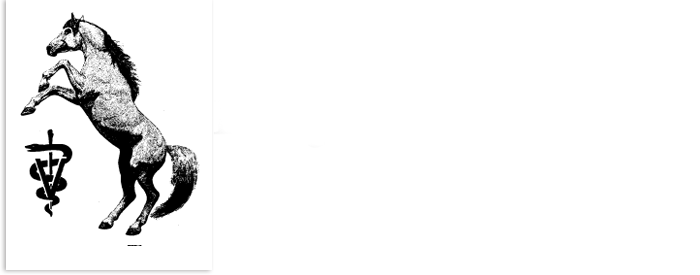Senior Horse Care
Many of my patients are getting older. It is not unusual for me to be treating horses in their 20s and now more and more horses over 30. These have frequently been equine friends to their owners for a long time and they want to maximize their quality of life. There are a variety of both diagnostics and treatments that I use to help these patients and you should consider it as your horse reaches his or her later years. Many of the older horses have difficulty holding their weight, have muscle loss, or problems with hair loss, lack of hair loss, laminitis, and just moving around. Dental care, the use of anabolic steroids to build up muscle mass, and addressing Cushing's disease and arthritic conditions are among the areas I can help your horse.
The start of any assessment is a good physical exam and usually taking a complete blood count and profile. That blood work includes white blood cell counts, red blood cell counts, liver and kidney enzymes, protein and sugar levels and electrolytes. Any problems revealed here can and should be addressed.
For poor weight gain making sure your horse is properly floated is important. I have treated many older horses that for one reason or another have not had their teeth floated for many years and when I do float their teeth, I discover significant, often dramatic, dental issues preventing a horse from properly chewing their food. In some cases, chewing was so inefficient that even if fed properly the horse could not actually grind their food very well.
In other cases even with no problems with their teeth, horses can't keep the weight on. At some point, horses cannot get the same nutrition out of the same food they have always been eating. This is particularly true of the hay they eat. At that point, they need to be switched from hay to more highly digestible food such as chopped alfalfa and molasses meal (All-In-One) or an equine senior diet. These senior feeds are pelleted, specially prepared, high-calorie, easily digestible diets. They can be fed as the complete diet, not just as a supplement.
Here also anabolic steroids can be tremendously useful, often transformative. Anabolic steroids are a major problem if you are a baseball or a football player, but used therapeutically for older horses, they can transform a horse's life. For many, but not all, older horses I have treated with anabolic steroids, I see them increase their weight, increase their activity and act as if they were a teenager again. An initial series of injections is given. This is followed by an additional injection to keep up their body condition every 4 to 6 months.
Cushing's disease is another major problem. More than one in five horses over 20 years old have Cushing's disease which is an overproduction of the body's own cortisone. Symptoms that can indicate your horse may have Cushing's disease can be: lack of hair loss, or slow to shed out, lethargy, muscle loss, too much hair loss, cresty neck, big belly, too much urination and drinking, abnormal sweating, and never healing skin infections. Many of these horses founder (also known as laminitis). This is a painful, often life-threatening condition where the bone in the hoof detaches from the hoof wall making it painful to walk or even stand. They can also have significant problems with foot abscesses.
You cannot cure Cushing's disease, but fortunately, with proper testing and medication, you can treat it to the point where the symptoms are largely diminished or eliminated.
Joint Disease and Arthritis
Many older horses, just like people, have lived an athletic life and developed arthritis. In the most advanced cases, horses can have trouble standing up and laying down, difficulty going down hills, or keeping up with pasture mates. In these horses joint medications either into specific joints, like the hocks or systemic injectable medication such as the combination of Pentosan and Acetyl-D-Glucsoamine can make a huge difference. Unfortunately, there is very little evidence that food supplements make much, if any, difference. In addition, daily pain medications such as meloxicam, firoxocib (Equioxx, Previcox), and bute, can also help tremendously with an older horse's comfort.
Ringbone, an arthritis in the pastern, is another special case. All of the above can help a horse with ringbone. There is now a treatment using direct joint injections with alcohol to cause a fusion of the affected joint that relieves the pain. This approach has also been used in bone spavin in the hocks. For both ringbone in the pastern and bone spavin in the hocks there is the option to do a surgery to fuse the arthritic joints in horses that do not respond to other treatments.
Keeping our older horse friends in the best condition possible can be rewarding to you and your horse. Please contact me if you would like to address your horse's needs.

